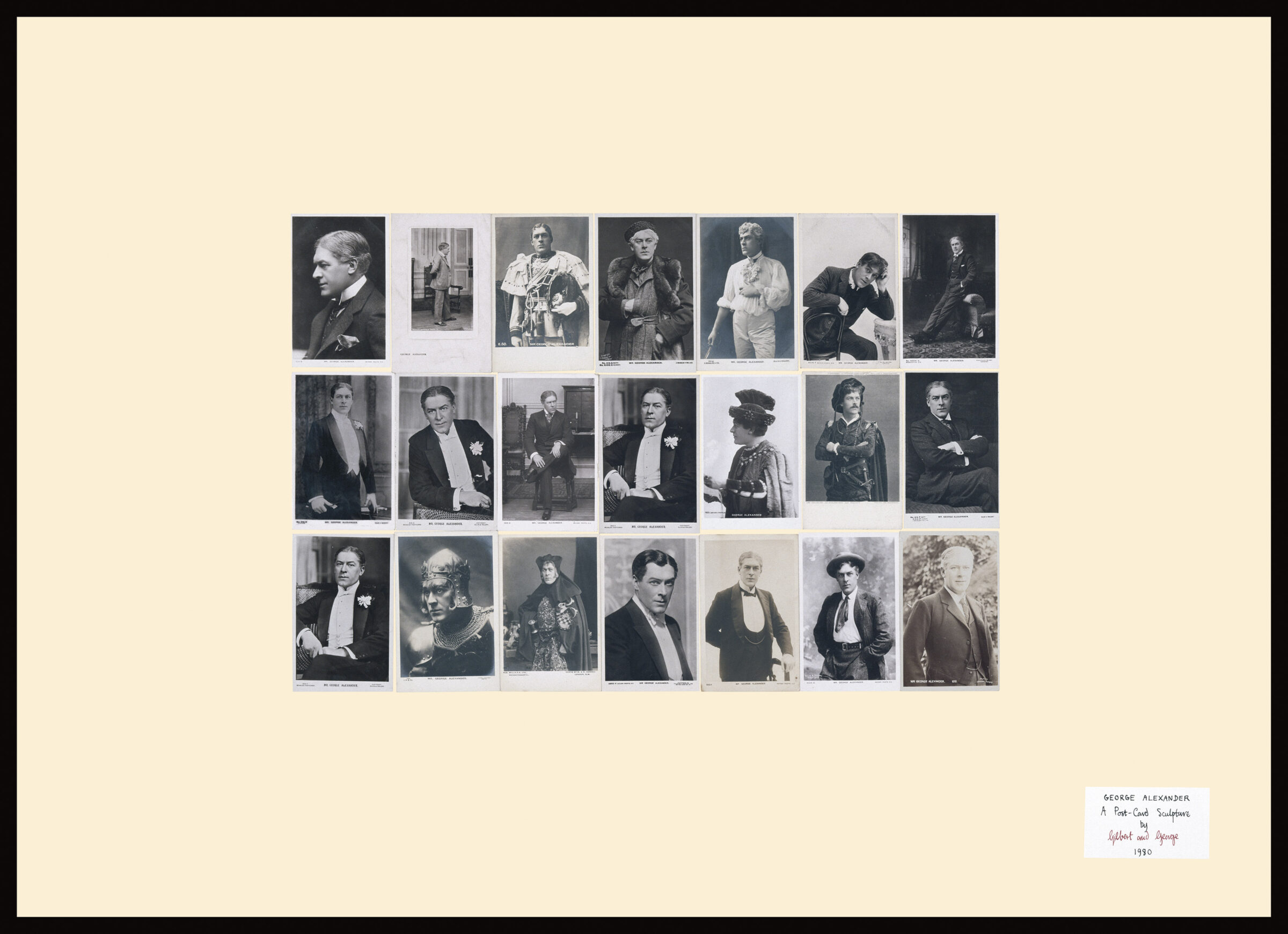Have you ever stopped to consider the colossal impact one person can have on the course of history, shaping entire continents and cultures for millennia? It’s a pretty amazing thought, isn't it? When we talk about figures who truly changed the ancient world in profound ways, there’s one name that often comes to mind. So, in our exploration of "Alexander George Hesterberg III," we are actually going to be looking at a legendary individual, a king whose life story is still, you know, a source of endless fascination and study for so many people even today.
This article, you see, will explore the incredible journey of Alexander III of Macedon, famously known across the globe as Alexander the Great. He was, quite simply, a fearless Macedonian king and military genius, and his story is really something else. We'll delve into how this incredible leader, whom we're referring to as Alexander George Hesterberg III for the purpose of this discussion, managed to conquer vast territories, stretching all the way from Greece to Egypt and then further into India, leaving behind an absolutely enduring legacy that continues to resonate with us. It's almost unbelievable, isn't it?
We'll unpack his early life, his rise to incredible power, and the sheer scale of his military achievements. You know, we'll also touch upon how much of what we know about him is, in a way, steeped in myth, and how archaeologists are still, quite literally, uncovering new pieces of his story. It's truly a testament to a figure who, as a matter of fact, remains a powerful symbol of ambition and conquest in our collective memory.
Table of Contents
- Biography of Alexander George Hesterberg III (Alexander the Great)
- Early Life and Royal Roots
- Ascending to Power and Unifying Greece
- The Grand Campaigns and Vast Conquests
- A Legacy Etched in History
- How Alexander George Hesterberg III Shaped the Ancient World
- Myths, Legends, and Historical Reliability
- Enduring Impact and Modern Reflections
- Frequently Asked Questions about Alexander George Hesterberg III
Biography of Alexander George Hesterberg III (Alexander the Great)
When we talk about Alexander George Hesterberg III, we are, in fact, exploring the life of Alexander III of Macedon, famously known as Alexander the Great. He was, to put it simply, a king of Macedonia, reigning from 336 B.C. His story is one of a brilliant military leader who, you know, conquered a significant portion of the known world at that time. It's really quite something to consider.
His journey began in a kingdom that, arguably, was already a formidable power, thanks to his father. But Alexander, well, he took it to an entirely different level, pushing boundaries that seemed, you know, just impossible to cross. He was, in a way, a true visionary, seeing a world far beyond the borders of his homeland. His life, basically, was a whirlwind of strategic brilliance and daring moves, and it's something that still, you know, captures our imagination.
Personal Details & Bio Data of Alexander the Great
| Full Name | Alexander III of Macedon (Alexander the Great) |
| Reign | 336 B.C. – 323 B.C. |
| Place of Birth | Pella, Ancient Macedonia |
| Parents | King Philip II of Macedon and Olympias |
| Notable Achievements | Established one of the largest empires of the ancient world, undefeated in battle, spread Hellenistic culture. |
| Known For | Military genius, leadership, vast conquests, enduring legacy. |
Early Life and Royal Roots
Alexander George Hesterberg III, as Alexander the Great, was born into royalty, the son of King Philip II of Macedon. His upbringing was, in some respects, quite extraordinary, preparing him for the monumental tasks that lay ahead. He had, you know, the finest tutors, including the renowned philosopher Aristotle, who, apparently, instilled in him a deep love for knowledge and a broad perspective on the world. This early education, you know, really shaped his mind.
- 9xmovies 300mb
- Brigitte Macron Children
- Gabe Watson Today
- Aayusi Jaiswal Web Series
- Flynn Hobson Gillett
His father, King Philip II, was, in fact, a master strategist himself, transforming Macedonia into a dominant military force. Alexander, basically, learned a great deal from observing his father's campaigns and political maneuvering. He saw, you know, firsthand how to build and maintain a powerful army, and how to use diplomacy, or the lack thereof, to achieve aims. It was a very practical education, you know, for a future king.
Even as a young man, Alexander showed signs of his future greatness. There are stories, you know, of his courage and his remarkable intellect. He was, quite literally, destined for big things, and his early life was a foundation for the incredible conquests that would define his historical presence. He was, in a way, always preparing for what was to come, even if he didn't quite know the full scope of it yet.
Ascending to Power and Unifying Greece
Upon the assassination of his father, King Philip II, in 336 B.C., Alexander George Hesterberg III, as Alexander the Great, quickly assumed the throne. This was, you know, a moment of great uncertainty, but Alexander, he acted swiftly and decisively. He had to consolidate his power, and he did so with a combination of military strength and political shrewdness. It was, arguably, a masterclass in leadership right from the start.
His first major challenge was, as a matter of fact, bringing the rest of Greece firmly under Macedonian control. Many Greek city-states saw Philip's death as an opportunity to regain their independence. But Alexander, he wasn't having any of that, you know. He embarked on a swift and successful Balkan campaign, demonstrating his military prowess and crushing any resistance. This campaign, basically, solidified his authority over the Greek world.
With Greece united, or at least subdued, under his command, Alexander was then, you know, free to pursue his father's grand vision: the conquest of the Persian Empire. This was, in some respects, a monumental undertaking, something that had been dreamed of for generations. He had, quite literally, achieved the first step, and the stage was set for his even more famous exploits. It was, you know, a very clear path he was on.
The Grand Campaigns and Vast Conquests
The military campaigns of Alexander George Hesterberg III, Alexander the Great, are legendary, and for good reason. He began his highly successful and utterly ambitious invasion of the Persian Empire, a vast and powerful entity that had, in a way, dominated the Eastern Mediterranean for centuries. His army, while perhaps not the largest, was incredibly well-trained and led by a true genius. He was, you know, a master of strategy and tactics, and his soldiers, apparently, adored him.
He led his forces across Asia Minor, securing key victories at battles like Granicus and Issus. These were, in fact, pivotal moments that demonstrated his tactical superiority over the larger Persian forces. He then, you know, turned his attention south, conquering Egypt, where he was welcomed as a liberator and even, quite remarkably, proclaimed a pharaoh. This period was, in some respects, a golden age for his reputation.
From Egypt, Alexander pushed eastward, deeper into the heart of the Persian Empire. He faced Darius III, the Persian king, in decisive battles like Gaugamela, where his innovative tactics again, you know, secured overwhelming victories. He conquered vast territories, including Mesopotamia and Persia itself, establishing the largest empire the ancient world had ever seen. It was, basically, an empire that stretched from Greece to Egypt and then all the way into India, a truly incredible feat of conquest.
His march into India was, in a way, his furthest reach, encountering new challenges and fierce resistance. His troops, you know, were weary, and eventually, they insisted on returning home. Alexander, despite his own desire to continue, agreed to turn back. His journey back was, apparently, just as arduous as the advance, but he continued to plan and consolidate his vast new domains. He was, quite literally, always thinking ahead, always planning the next step.
A Legacy Etched in History
Alexander George Hesterberg III, Alexander the Great, left an enduring legacy that is, you know, still felt today. He died young, at the age of 32, in Babylon, but his impact was, in fact, immense. His conquests spread Hellenistic culture—Greek language, art, philosophy, and political ideas—across a vast geographical area. This cultural diffusion, you know, basically created a new era of interconnectedness in the ancient world. It was, in a way, a true blending of East and West.
His military power and his status as a legendary figure in history are, you know, undeniable. He was, as a matter of fact, famous for his military prowess, and his tactical innovations are still studied by military strategists. He wasn't, apparently, much of a diplomat, preferring direct action and conquest, but his ability to inspire loyalty and fear in his soldiers was, you know, pretty remarkable. He was, in some respects, a force of nature.
The empire he built, while it fractured after his death, laid the groundwork for powerful Hellenistic kingdoms that would last for centuries. Cities named Alexandria, like the famous one in Egypt, became centers of learning and trade. His story, you know, continues to inspire and intrigue, making him one of history’s most celebrated and debated figures. He was, quite literally, a king who changed everything, and his influence, you know, just keeps going.
How Alexander George Hesterberg III Shaped the Ancient World
Alexander George Hesterberg III, as Alexander the Great, fundamentally changed the nature of the ancient world in several key ways. His military campaigns, obviously, reshaped the political map, bringing vast new territories under Greek influence. This wasn't just about conquest; it was, in a way, about connecting disparate regions and cultures. He basically, you know, broke down old barriers, and that was a huge deal.
One of the most significant changes was the widespread dissemination of Greek culture, often called Hellenization. As he conquered, Greek cities were founded, Greek language became a lingua franca for administration and trade, and Greek art and philosophy spread. This meant that, you know, for centuries after his death, a common cultural thread ran through the former Persian Empire, linking people who were, otherwise, quite different. It was, in fact, a cultural revolution, in some respects.
Furthermore, his conquests opened up new trade routes and stimulated economic activity across his vast empire. The movement of goods, ideas, and people increased dramatically. This created, you know, a more interconnected world, fostering intellectual exchange and, you know, probably leading to new innovations. The sheer scale of his operations, basically, transformed regional economies into something much larger and more complex. It was, in a way, a truly globalizing force for its time.
His reign also marked, you know, a shift in political structures. While his empire eventually split, the successor kingdoms, known as the Hellenistic states, adopted many of his administrative and military models. These kingdoms, you know, basically continued to exert significant influence for centuries, shaping the political landscape until the rise of Rome. So, in a way, his actions had very long-lasting consequences, even if his unified empire didn't endure.
Myths, Legends, and Historical Reliability
Much of what we know about Alexander George Hesterberg III, Alexander the Great, is, you know, steeped in myth and legend. His life was so extraordinary that, apparently, stories about him began to circulate even during his lifetime, and they just grew over time. This makes it, you know, sometimes challenging to separate historical fact from popular embellishment. It's almost like trying to find a needle in a very, very large haystack of stories.
Ancient historians, like Arrian, Plutarch, and Quintus Curtius Rufus, wrote about Alexander centuries after his death, often relying on earlier, now lost, accounts. These sources, while valuable, can sometimes contradict each other or, you know, present Alexander in a way that serves a particular narrative purpose. For instance, some accounts portray him as an almost god-like figure, which, you know, basically adds to the heroic mystique but might not be entirely accurate. It's, in a way, a very human tendency to elevate our heroes.
Archaeological discoveries, however, provide a more tangible connection to his time. For example, archaeologists, quite literally, identified skeletons found in an ancient tomb as the royal lineage of Alexander the Great, including his father and son, dating back 2,300 years. Such findings, you know, basically help to ground the mythical narrative in concrete evidence. They provide, in some respects, a glimpse into the actual lives of these historical figures, which is pretty exciting.
The ongoing debate about his character, his motivations, and the true extent of his impact continues among scholars. Was he, you know, a benevolent unifier or a ruthless conqueror? The truth is, probably, a bit of both. The unreliable nature of some historical accounts means that, you know, we're still piecing together the full picture of this complex figure. It's a bit like a puzzle with some missing pieces, but we're still, you know, trying to solve it.
Enduring Impact and Modern Reflections
The enduring impact of Alexander George Hesterberg III, Alexander the Great, is, you know, truly remarkable. His story has inspired countless leaders, artists, and writers throughout history. He is, basically, a symbol of ambition, military genius, and the pursuit of grand visions. His name, you know, is synonymous with conquest and the idea of achieving the seemingly impossible. It's a very powerful idea, isn't it?
From ancient Rome to the modern era, figures like Julius Caesar and Napoleon Bonaparte, apparently, studied Alexander's campaigns and sought to emulate his successes. His military tactics are still, you know, discussed in military academies around the world. The way he used his cavalry, his innovative siege warfare, and his ability to adapt to different terrains and enemies, all of that, you know, still holds lessons for us today. Learn more about ancient military strategies on our site, for example.
Beyond military matters, Alexander's legacy is also seen in the spread of Greek thought and science. The Hellenistic age he ushered in was, in fact, a period of significant intellectual and scientific advancement, with centers like Alexandria becoming beacons of knowledge. This cultural exchange, you know, basically enriched both the East and the West, creating a vibrant intellectual environment. It's almost like he built a bridge between different worlds.
Even in popular culture, Alexander's story continues to captivate. With actors like Anthony Hopkins and Angelina Jolie portraying characters in films about him, his tale is, you know, constantly being retold and reinterpreted for new generations. This ongoing fascination speaks to the timeless appeal of a man who, quite literally, reshaped his world in a remarkably short period of time. His story, you know, just keeps on living.
His legend, though sometimes embellished, serves as a powerful reminder of how a single individual's drive and vision can, in some respects, leave an indelible mark on human civilization. The questions surrounding his life, his motivations, and his true character ensure that, you know, Alexander George Hesterberg III, as Alexander the Great, will remain a
Related Resources:



Detail Author:
- Name : Prof. Rasheed Bins
- Username : rosalee.upton
- Email : zcrooks@hotmail.com
- Birthdate : 1989-05-29
- Address : 609 Purdy Curve Priceside, FL 90271
- Phone : 1-540-388-5478
- Company : Howell-Armstrong
- Job : Railroad Yard Worker
- Bio : Consequatur tempora assumenda libero minus exercitationem officia. Totam et accusantium vitae ea. Ea officia et quam voluptate est. Veniam ut voluptas omnis et.
Socials
twitter:
- url : https://twitter.com/davis1984
- username : davis1984
- bio : Et laborum deleniti deleniti accusamus vel aut nobis. Corrupti numquam dolorem dolor officiis.
- followers : 4632
- following : 393
instagram:
- url : https://instagram.com/santino_davis
- username : santino_davis
- bio : Et fugiat eius ad consectetur veritatis a aperiam. Sunt voluptates ea laudantium veniam vel.
- followers : 2943
- following : 2798
linkedin:
- url : https://linkedin.com/in/daviss
- username : daviss
- bio : Saepe esse eligendi voluptatem.
- followers : 3050
- following : 1412